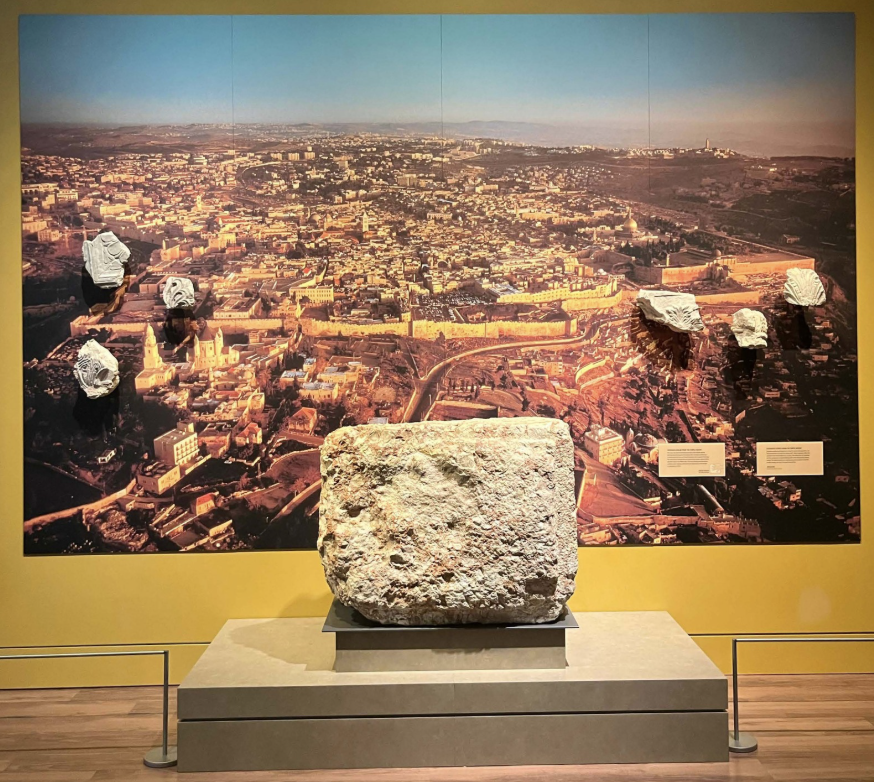Inspire 21-Day Devotional: Illuminating God's Wordਨਮੂਨਾ

WEEK 3, DAY 4: WHERE DID THE BIBLE COME FROM?
Israel
Before he passed from this life, Moses gave the people of Israel one final round of exhortations and recorded these speeches in what we now know as the book of Deuteronomy—Moses’ second (Gk. deutero-) giving of the law (Gk. nomos). After delivering his message, the LORD led Moses to the top of a high mountain that overlooked the Promised Land so he could see what lay before him and his people.
The land “flowing with milk and honey” was a sight to behold, to be sure. In the north, snow-capped mountains ran alongside the Great Sea, with Mount Hermon standing higher than the rest. Each spring, its snowmelt replenished the springs of the Jordan River, which ran its course due south and terminated in the Dead Sea. Just west of the Jordan River, Israel’s central mountain range rose above the landscape, gradually giving way to gentler foothills and, farther west still, a fertile plain sloped down to the Mediterranean. A network of valleys carved their way through the foothills and mountains, making it possible to move across the land at pre-determined intervals. In the south, jutting up against the coastal plain, laid a vast, rocky Negev desert, providing a natural defense and retreat.
Moses’s people couldn’t have asked for a better piece of real estate. Located on the one strip of land that connected the mightiest empires of the day—to the southwest, there was Egypt; to the north, the Hittites; and to the east, beyond a great desert, there were the mighty kingdoms of Mesopotamia, Assyria, and Babylon—Israel would have a chance to be what God had called them to be: a kingdom of priests that would bring the nations back to him.
As Moses stood there viewing the Promised Land, he had no doubt that it could provide all the resources his people needed. This, in fact, would be part of the problem. Even before they entered the land, he knew that Israel as a nation would fail to be faithful to their covenant with God and his call on their lives. His people would be scattered among the nations, exiled to foreign lands. Yet even then, God would not abandon them. He would raise up a new Israel, one who would be a faithful son, one who would not live on bread alone, but on every word of His. Indeed, God would once again raise up a prophet like Moses for his people, and then the people would truly be blessed.

Artifact: Stone from the Retaining Wall of the Second Temple
The stone you see here once stood in the retaining wall of this Second Temple Complex. This project, which began in 20 BC during the reign of Herod the Great, was still under construction during Jesus’ ministry (John 2:20). In fact, the Second Temple Complex wasn’t completed until AD 64. After standing for only six years, the general and future emperor Titus led the Roman army into Jerusalem. The city was destroyed and the temple was razed to the ground. As Jesus and his early disciples taught, the fall of this temple did not mean God’s plan had been thwarted. Rather, through Jesus, God himself had started to build a new temple, the Church.
Q1. What are the main themes or ideas of the Scripture passage?
Q2. What does this devotional tell me about who God is?
Q3. How does this devotional challenge or encourage me?
Q4. What specific action can I take to live out this teaching?
Q5. Who should I share this with for encouragement or accountability?
ਪਵਿੱਤਰ ਸ਼ਾਸਤਰ
About this Plan

Welcome to this 21-day devotional journey designed to help you deepen your understanding of the Bible and grow in your faith. Over the next three weeks, we will explore the foundational questions that shape our approach to Scripture. By engaging with these questions, we hope you will not only gain a richer knowledge of the Bible but also develop a stronger sense of trust and connection to God’s Word. Each week, we will focus on one key question: What is the Bible? Can We Trust the Bible? Where Did the Bible Come From?
More
Related Plans

Everyone Should Know - Thanksgiving Special

When Heaven Touched Earth - a 7 Day Journey to Christmas

Lessons From Some Hidden Heroes in the Bible

The Mandate to Multiply.

Scriptures and Hymns to Grow Your Joy This Christmas

Hope in Creator’s Promises

OVERCOME Lust WITH TRUST

Your Prayer Has Been Heard: How God Meets Us in Seasons of Weariness and Waiting

Adversity
